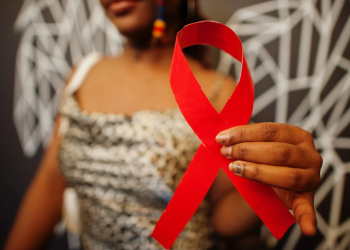[vc_row][vc_column][vc_column_text]
“Molly, you in danger girl.” Oda Mae
In the infamous words of Oda Mae, Whoopi Goldberg’s character in the movie Ghost, “We In Danger!” In danger of what, you say? According to the World Health Organization, the world is running out of antibiotics to treat certain infections. One infection, in particular, we are seeing a high level of resistance to standard treatment is gonorrhea. The first case of antibiotic-resistant or “super” gonorrhea was reported in March 2018. It is reported that a man caught the infection in Southeast Asia while traveling, Public Health England reports.
The man’s infection was described to be “very resistant to the recommended first-line treatment,” by Dr. Gwenda Hughes, head of the sexually transmitted infection section at Public Health England.” The drug-resistant nature of gonorrhea has been a growing concern for some time, but this new case is especially alarming. According to Dr. Hughes, “This is the first time a case has displayed such high-level resistance to both of these drugs and to most other commonly used antibiotics.”
The man is reportedly being treated intravenously with antibiotics that seem to be effective for now.
So how do you avoid contracting this “super” gonorrhea? The best way to avoid “super” gonorrhea is to practice safe sex. With the emergence of this super gonorrhea, it is critical that individuals protect themselves more so than ever.
What is gonorrhea?
According to the CDC, gonorrhea is a sexually transmitted infection (STI) caused by the Neisseria gonorrhoeae bacterium. It infects the warm, moist areas of the body including the reproductive organs, mouth, throat, eyes, and rectum.
How common is gonorrhea?
Gonorrhea is the second most commonly reported disease in the United States. There are nearly 400,000 reported cases of gonorrhea per year, but the CDC estimates there are 820,000 new infections actually occurring each year.
How is gonorrhea spread?
Gonorrhea is spread through unprotected sexual contact with the penis, vagina, mouth, or anus of an infected person. Gonorrhea can also be spread from mother to baby during childbirth.
Note: Ejaculation does not have to occur to spread gonorrhea.
What are the signs and symptoms of gonorrhea?
Symptoms usually occur within two to 14 days after exposure. However, many people never develop noticeable symptoms.
If a person does develop symptoms, they may include:
- Discharge
- Pain or burning sensation while urinating
- Frequent urination
- A sore throat
- Pain upon engaging in sexual intercourse
- Sharp pain in the lower abdomen
fever
What to do if you think you have gonorrhea?
Avoid any sexual activity and contact your doctor immediately.
Preventing gonorrhea
The most reliable way to prevent the transmission of gonorrhea or other STI’s is to abstain from sex. If you are sexually active, always use a condom when you engage in vaginal, oral, or anal sexual intercourse, communicate with your sexual partners, and get regular STI screenings.
 Stacy Grundy, MPH, CHES is a Certified Health Education Specialist and has a B.S. in Human Nutrition from the University of Illinois at Urbana-Champaign and a Master’s of Public Health in Health Promotion and Behavioral Sciences from the University of Texas School of Public Health. As a public health professional, her primary focus is the elimination of health disparities through policy, systems, and environmental changes.
Stacy Grundy, MPH, CHES is a Certified Health Education Specialist and has a B.S. in Human Nutrition from the University of Illinois at Urbana-Champaign and a Master’s of Public Health in Health Promotion and Behavioral Sciences from the University of Texas School of Public Health. As a public health professional, her primary focus is the elimination of health disparities through policy, systems, and environmental changes.
[/vc_column_text][/vc_column][/vc_row]
























